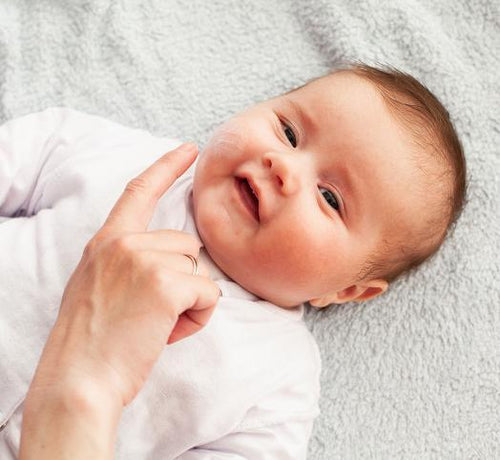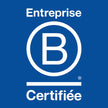Written in partnership with Dr Clarence De BELILOVSKY, Dermatologist member of the Mustela circle of experts
The first signs Your baby wakes up from a nap...
A little grumpy, little tears in his eyes and... very red cheeks! Bad dream ? Simple heatstroke? Little hungry ? Faced with this redness and his mood, doubt sets in.
It's true that at this age – in general, extremely dry skin begins around two months – it's impossible to ask him questions to find out exactly what he's feeling.
However, a few very simple clues can allow you to take an initial assessment:
- do you or your partner have or have had extremely dry skin? Heredity is certainly the most revealing sign
It is even a precious sign because it can allow you to adopt, from birth, care actions which could reduce the risk of developing symptoms by 33% to 50%.
- your baby's skin is very dry. You know this because no matter how much you moisturize it with a cream, it remains rough. It may even have some dander (peels) in certain places.
- your baby has difficulty falling asleep. There could be so many other reasons, it's true. But, associated with one or two other symptoms, this difficult sleep could be an additional indication (see the article My baby has difficulty sleeping).
- red patches are appearing... Particularly on his chin, his cheeks, his arms, his stomach... They are an almost unmistakable characteristic of extremely dry skin.
If tiny bubbles begin to form on these plates, there is no longer any room for doubt. This is a flare-up (The first flare-ups
What exactly happens during a flare-up?
The inflammation always takes the same path: at the beginning, it is small red spots that itch. These rednesses create slight elevations of the skin, making it rough. They can turn into small blisters, barely visible.
When they pierce, a translucent liquid may appear: this is oozing. It will leave room for a crust which will disappear on its own. In this regard, rest assured: whatever the intensity of these outbreaks, they will not leave any after-effects on the skin. You should prevent your baby from scratching so as not to accentuate the sensations or create a secondary infection.
How ? Through specific baby-child care such as an emollient balm or an emollient cream and little tips that could relieve it. Extremely dry skin, redness, allergies... seek the advice of your pediatrician As soon as you suspect that your child has these symptoms, it is best to consult your pediatrician.
First of all to confirm the diagnosis.
If your child also has food allergies, he or she may also refer you to a dermatologist or allergist. These specialists will be able to prescribe specific treatment in the event of a flare-up.
The rest of the time, that is to say during periods of calm, you can put in place small, very effective rituals to help prevent it... 1 Source: Eric L. Simpson 2014, Horimukai 2014.




